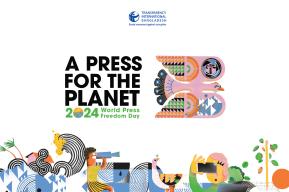News
Journalists from Colombia, Ecuador and Venezuela trained to report on drug trafficking and organized crime

Recent support provided through the International Programme for the Development of Communication (IPDC) has enabled 17 journalists from Colombia, Ecuador and Venezuela to receive training on self-protection mechanisms and techniques of investigative journalism specific to covering drug trafficking and organized crime.
The workshop covered topics such as the handling of confidential sources and information, in order to reveal the facts without putting others’ safety at risk.
As a result of the workshop, six investigative reports relating to drug trafficking and organized crime were produced by the participants, some of which were published by major Colombian media outlets including Semana magazine and La Verdad newspaper, as well as being posted on the Cosecha Roja Network.
This IPDC project was coordinated by UNESCO’s Office in Quito in collaboration with the Foundation for a New Journalism (FNPI), and falls under the framework of the UN Plan of Action on the Safety of Journalists and the issue of Impunity.
The workshop was conducted by a selection of Colombian experts including: Álvaro Sierra, a journalist skilled on the coverage of drugs and conflicts; Francisco Thoumi, a professional on international narcotics control; and Socorro Ramirez, a specialist on Colombia’s border studies.
Among the international participants who attended the workshop as trainers were Simone Bruno, an Italian journalist who chairs the International Press Association of Colombia; Donna Césare, a photojournalist from the USA known for her work on the coverage of gangs, victims of abuse and HIV stigma; and the Argentinian Cristian Alarcon, Director of Coseha Roja Network.
A full summary of the contents and recommendations which emerged can be downloaded from the FNPI webpage and Cosecha Roja network, via the following links:









